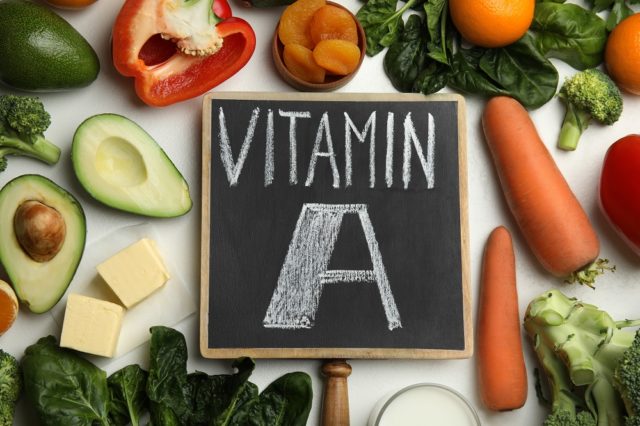Benefits of vitamin A
The human body is an extraordinary machine, with gears that work in synergy with each other. Like any self-respecting machine, our body also needs a series of essential elements in order to function correctly, avoiding serious or less serious health problems. We are referring to nutrients, precious substances such as minerals, vitamins, and more, which help to maintain the well-being of our body in an optimal condition. Vitamin A also belongs to the range of these precious elements. We know its main properties and how to assimilate it properly, so as to avoid deficits.
What is vitamin A
Vitamin A, also known as retinol, belongs to the group of fat-soluble vitamins, which also includes vitamin D, vitamin E, and vitamin K. It is a vitamin abundantly present in food, so much so that it is rarely deficient in the diet. Vitamin A is stored inside the liver and, like the other vitamins, it performs many essential functions in our body.
Properties of vitamin A
Vitamin A is important for
- the proper functioning of the visual system because it belongs to the components of rhodopsin, a substance present in the retina that ensures the eye sensitivity to light
- the growth of bones and teeth
- the maintenance of epithelial cells
- the functioning of the immune system, by virtue of its ability to increase resistance to infections
- skin protection from sun exposure damage
- the ability to combat free radicals and, consequently, oxidative stress, among the main causes of early cellular aging.
The scientific literature has also attributed to vitamin A a possible protective role against the development of prostate cancer.
Where can you find vitamin A
Vitamin A is particularly present in foods of animal origin. It can be found for example in eggs, liver, milk, and its derivatives, such as butter and cheese.

However, it can also be obtained from products of plant origin containing carotenoids, the latter being precursors of vitamin A. Especially rich in these substances are red, yellow, and orange fruits and vegetables, including tomatoes, berries, carrots, apricots, peaches and watermelon. Carotenoids are also found in green leafy vegetables, such as broccoli and spinach, but also in foods of animal origin, including eggs and milk.
Being sensitive to heat, vitamin A tends to lose many of its properties during the cooking process. For this reason, it is advisable to consume food containing it as raw as possible or to cook it only briefly.
Vitamin A deficiency symptoms
The daily vitamin A requirement is approximately 0.6-0.7 mg, which can increase to 0.95 mg during lactation.
Retinol deficiency can lead to various problems in the body, even serious ones. First of all, it can cause vision defects and, if prolonged over time, vitamin A deficiency can lead to blindness.
Also read: How to Effectively Treat Period Acne
Vitamin A deficiency symptoms
- give rise to fetal malformations, in the case of pregnant women
- lead to excessive susceptibility to infection
- hinder the normal growth process of the organism
- have negative effects on the hair, causing an alteration in the normal activity of the sebaceous glands, with the consequent onset of dry hair, dandruff, and thickening of the scalp.
In order to remedy any retinol deficiency, it is possible to use specific supplements, but only under careful medical advice.
Excess vitamin A symptoms
An excess of retinol accumulated in the liver can give rise to a picture of hypervitaminosis, which in turn can lead to intoxications that manifest themselves with symptoms such as migraine, nausea, vomiting, and visual disturbances. However, the symptoms disappear in a short time after proper vitamin intake. In the worst case, excess vitamin A can lead to permanent damage to the liver and spleen.
Translated and adapted by Limepedia staff.
Sources: Nonsprecare







